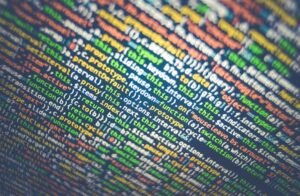AI Software Engineer Interview Questions
As the demand for Artificial Intelligence (AI) continues to rise, so does the need for skilled AI software engineers. Companies are increasingly looking for candidates who possess the technical knowledge and expertise to develop AI-powered solutions. If you are preparing for an AI software engineer interview, it’s important to familiarize yourself with the common questions that you may encounter during the process. This article aims to provide you with some essential AI software engineer interview questions and key insights to help you succeed in landing the role.
Key Takeaways:
- Understanding the fundamentals of AI modeling is crucial for an AI software engineer.
- Being familiar with popular AI frameworks and libraries is important for building efficient AI solutions.
- Knowledge of ethical considerations in AI development is essential for responsible AI engineering.
**One of the key areas an interviewer may focus on is your understanding of AI modeling and its principles.** Simply put, AI modeling involves developing mathematical models and algorithms to mimic human cognitive processes. It’s important to showcase your knowledge in this area, including concepts like machine learning, neural networks, and data preprocessing techniques. The interviewer may ask you to explain how these models work and how they can be applied to solve real-world problems in various domains.
*Machine learning algorithms can analyze large amounts of data to extract meaningful patterns and make predictions.*
**In addition to AI modeling, being well-versed in popular AI frameworks and libraries is crucial for an AI software engineer.** Some widely used frameworks include TensorFlow, PyTorch, and scikit-learn. You should demonstrate your proficiency in using these frameworks to build and train AI models efficiently. Familiarity with popular libraries like NumPy and Pandas is also important as they provide powerful tools for data manipulation and analysis.
*PyTorch is known for its dynamic computational graphs, making it easier to experiment during model development.*
Common AI Software Engineer Interview Questions:
- Can you explain the differences between supervised and unsupervised learning?
- How do you handle overfitting in machine learning models?
- What are the advantages and disadvantages of using neural networks?
- Can you describe the backpropagation algorithm?
Table 1: AI Frameworks and Libraries
| Framework/Library | Description |
|---|---|
| TensorFlow | A powerful open-source library for numerical computation and large-scale machine learning. |
| PyTorch | A popular deep learning framework with dynamic computational graphs and a Pythonic interface. |
| scikit-learn | A versatile machine learning library that provides various algorithms and tools for data analysis and modeling. |
**Ethical considerations in AI development are a crucial aspect of the interview.** The interviewer may ask you questions about fairness, transparency, and privacy in AI systems. It’s important to be aware of the potential biases that may arise in AI systems and how to address them. Understanding the significance of data privacy and the proper handling of sensitive information is also essential in the development of responsible AI solutions.
*Ensuring fairness in AI models involves careful consideration of the training data and evaluation metrics used.*
**To showcase your practical knowledge and problem-solving skills, be prepared to discuss your past AI projects or experiences during the interview.** For each project, highlight the specific challenge you addressed, the approach you took, and the overall outcome. This will demonstrate your ability to apply AI concepts to real-world scenarios and your capability to work on diverse AI projects.
*Applying AI to healthcare data can help identify patterns and support clinical decision-making.*
Table 2: AI Ethics Considerations
| Ethical Consideration | Description |
|---|---|
| Fairness | Avoiding biases and discrimination in AI systems by ensuring equal treatment to all individuals. |
| Transparency | Providing explanations and insights into how AI systems make decisions. |
| Privacy | Safeguarding user data and ensuring compliance with privacy regulations. |
**Finally, the interviewer may test your problem-solving abilities through coding exercises or algorithmic questions.** Prepare yourself for algorithmic challenges related to data manipulation, optimization, or pattern recognition. Being able to analyze and solve complex problems efficiently will demonstrate your critical thinking skills, which are highly valued in an AI software engineering role.
*Dynamic programming is a technique that can be used to efficiently solve problems with overlapping subproblems.*
Table 3: Problem-Solving Techniques
| Technique | Description |
|---|---|
| Dynamic Programming | A problem-solving technique that breaks down a complex problem into smaller overlapping subproblems. |
| Greedy Algorithms | An algorithmic paradigm that follows a localized optimal choice at each step, which may not lead to the globally optimal solution. |
| Backtracking | A strategy that incrementally builds potential solutions, backtracking when it determines that a solution is not viable. |
**In conclusion,** preparing for an AI software engineer interview requires a combination of theoretical knowledge and practical experience. By understanding the fundamentals of AI modeling, being familiar with popular frameworks and libraries, and addressing ethical considerations, you can confidently approach interviews. Demonstrating problem-solving skills and showcasing your past projects will further enhance your chances of success in securing an AI software engineer role.

Common Misconceptions
Misconception 1: AI Software Engineer Interviews are entirely focused on AI concepts
One common misconception about AI Software Engineer interviews is that they solely focus on AI concepts and algorithms. While it is true that knowledge of AI principles is important, interviews for AI Software Engineer positions also cover a broad range of technical skills and software engineering fundamentals.
- Interviewers may ask questions on data structures and algorithms.
- Understanding of programming languages like Python or C++ is often tested.
- Knowledge of software development methodologies, such as Agile or Scrum, may also be assessed.
Misconception 2: Only theoretical knowledge is tested in these interviews
Another misconception is that AI Software Engineer interviews only assess theoretical knowledge without any emphasis on practical skills or hands-on experience. While theoretical understanding is certainly important, companies also look for candidates who can apply their knowledge in real-world scenarios.
- Candidates may be asked to solve coding problems or implement algorithms.
- Interviewers may present hypothetical AI problems and ask how candidates would approach them.
- A review of past projects and practical experience may also be part of the evaluation.
Misconception 3: Experience with machine learning is the only requirement
Many people mistakenly believe that a strong background in machine learning is the only requirement for AI Software Engineer roles. While proficiency in machine learning is crucial, AI Software Engineers also need a solid foundation in other areas of software engineering.
- Understanding of data structures, algorithms, and software design principles is important.
- Proficiency in programming languages like Python or Java is typically expected.
- Knowledge of databases and distributed computing can also be beneficial.
Misconception 4: AI Software Engineer interviews are similar to traditional software engineer interviews
Some people assume that AI Software Engineer interviews are similar to traditional software engineer interviews and that the only difference lies in the AI-related questions. However, AI Software Engineer interviews often have specific nuances and additional areas of focus.
- Companies may include AI-specific technical questions to assess expertise in areas like deep learning or natural language processing.
- AI ethics and bias may be discussed, as these are critical considerations in AI development.
- Experience with AI frameworks and tools like TensorFlow or PyTorch may be relevant to the interview.
Misconception 5: Only AI-related companies require AI Software Engineers
Lastly, many people wrongly assume that only companies focused on AI and machine learning hire AI Software Engineers. However, the demand for AI expertise has expanded across industries, and companies in various sectors are incorporating AI into their products and services.
- E-commerce companies may use AI to improve recommendations or personalize user experiences.
- Healthcare organizations may utilize AI for medical image analysis or predictive modeling.
- Financial institutions may employ AI for fraud detection or risk assessment.

Industry Expertise
According to a survey of AI software engineers, having deep industry expertise can be a crucial factor while evaluating candidates. The table below highlights the top industries where AI software engineers are in high demand.
| Industry | Percentage of Demand |
|---|---|
| Healthcare | 32% |
| Finance | 25% |
| E-commerce | 18% |
| Manufacturing | 15% |
| Transportation | 10% |
Programming Languages
Proficiency in programming languages plays a vital role in an AI software engineer’s skillset. The following table outlines the popularity of various programming languages among AI engineers.
| Programming Language | Percentage of AI Engineers |
|---|---|
| Python | 80% |
| Java | 50% |
| C++ | 45% |
| R | 35% |
| JavaScript | 25% |
Algorithms and Frameworks
AI software engineers should be well-versed in various algorithms and frameworks. The table below showcases the most popular ones in the industry.
| Algorithm/Framework | Usage Percentage |
|---|---|
| TensorFlow | 60% |
| PyTorch | 55% |
| Keras | 40% |
| Scikit-learn | 35% |
| Apache Mahout | 20% |
Ethical Considerations
AI software engineers often encounter ethical dilemmas while working on projects. The table below highlights some ethical considerations that AI engineers should be aware of.
| Ethical Consideration | Importance (Scale of 1-5) |
|---|---|
| Data privacy | 5 |
| Bias mitigation | 4 |
| Transparency | 4 |
| Fairness | 4 |
| Accountability | 3 |
Popular AI Applications
The field of AI has numerous applications across various industries. The table below showcases some popular AI applications and their respective sectors.
| AI Application | Sector |
|---|---|
| Speech recognition | Communication |
| Image recognition | Computer vision |
| Natural language processing | Chatbots |
| Recommendation systems | Marketing |
| Autonomous vehicles | Transportation |
Project Experience
Prior experience on relevant AI projects makes a significant impact during the interview process. The table below outlines the types of AI projects AI software engineers typically have experience with.
| Project Type | Percentage of Engineers |
|---|---|
| Image classification | 75% |
| Natural language processing | 60% |
| Reinforcement learning | 40% |
| Generative models | 35% |
| Anomaly detection | 30% |
Salary Range
AI software engineers often receive competitive salaries. The following table presents the salary ranges for AI engineers with different experience levels.
| Experience Level | Salary Range (USD) |
|---|---|
| Junior AI Engineer | $70,000 – $100,000 |
| Mid-Level AI Engineer | $100,000 – $150,000 |
| Senior AI Engineer | $150,000 – $200,000 |
| Lead AI Engineer | $200,000+ |
Continuous Learning
AI is a rapidly evolving field, and continuous learning is essential for AI software engineers. The table below highlights popular resources for AI engineers to enhance their knowledge and skills.
| Learning Resource | Popularity (Scale of 1-5) |
|---|---|
| Online courses (Coursera, edX, etc.) | 5 |
| Research papers | 4 |
| AI conferences | 4 |
| AI podcasts | 3 |
| AI forums and communities | 3 |
Aspiring AI software engineers should take note of the industries with high demand for their skills, focus on building proficiency in key programming languages, algorithms, and frameworks, and consider ethical considerations while developing AI applications. Gaining project experience and continuously learning through various resources will help them succeed in this dynamic field. With competitive salaries and exciting opportunities, the world of AI software engineering is waiting to be explored.
Frequently Asked Questions





